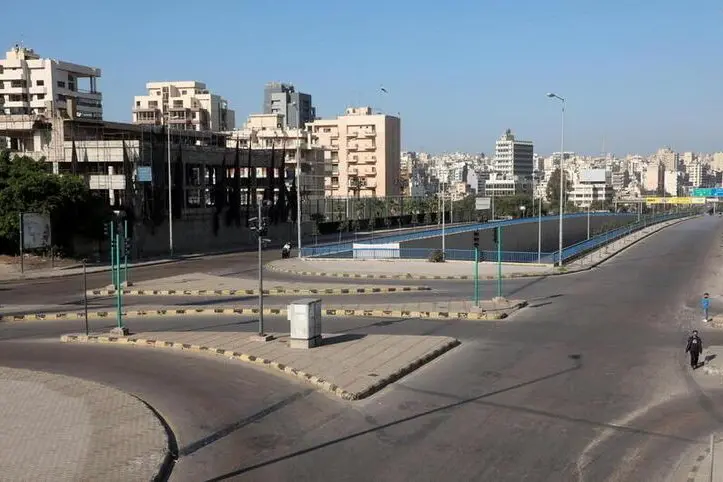PHOTO
Amid a falling currency, a hyperinflation rising to historic levels, a sharp scarcity of foreign exchange and a complete lockdown due to an alarming rise in the number of Covid 19 cases, Lebanon is entering 2021 on the wrong foot.
Despite the difficult economic crisis, the political class is still unable to form a government. On October 22, President Michel Aoun assigned Saad Hariri to form the new government, following an apology by his predecessor, Mustafa Adib, for his failure to form a government.
According to the Banque du Liban balance sheet, foreign currency assets in the bank decreased this year by 32 per cent from mid-November 2019. The decline, according to the report, is due to the central bank’s financing of the import of fuel, flour and medicines; support for a food basket; and the injection of the dollar into the exchange market. Figures from the Lebanese Institute for Market Studies indicate that the central bank’s losses have mounted to $40 billion, $20 billion of which was between 2018 and 2020.
According to International Monetary Fund data, the gross domestic product, which reached $53 billion in 2019, is expected to decline in an unprecedented way to $18 billion by the end of 2020. As for the country’s public debt, it reached about $95 billion by the end of September 2020.
Lebanon needs, more than ever, selfless and devoted leaders who will put the country’s interest first instead of their sectarian and political agenda. Today, the situation in Lebanon, to say the least, is dramatic with hospitals running out of beds as Covid-19 escalated rapidly, especially after the holidays.
Recently, the World Health Organisation reported that 81.7 per cent of Lebanese hospital beds were occupied and that the bed occupancy rate in intensive care units had reached 91.4 per cent, with a summit in Beirut. Some 2,295 healthcare workers had been infected as at January 10.
Many blame the government, whose hesitant policies and weak and uncoordinated measures between ministries stood in the way of containing the virus. The government decided, nevertheless, to tighten the measures, imposing a 24-hour curfew for 11 days.
It is forbidden to go out between 5am on January 14, 2021, and 5am on January 25, according to a Press release issued on Monday following a meeting of the Supreme Defence Council.
The Lebanese, who are already suffering from the collapse of the country’s economy, are drained to the bones as many are facing stark options — whether to die from Covid-19 or face hunger.
The majority of Lebanese have lost hope that there will be a change anytime soon. Not long ago on August 4, they witnessed the destruction of their capital Beirut due to a double explosion at a warehouse in the port area that was caused by 2,750 tonnes of ammonium nitrate were stored inside. Since the explosion, the Lebanese are still waiting for an explanation or apology as the latter is the key to healing their profound emotional trauma.
The Lebanese had lost everything in 2020, their life savings, their capital Beirut, their homes, their loved ones due to the Beirut bast, And now Covid-19 is claiming lives of many and still officials are not realising the emergency of the situation.
The stalling of a government formation is no longer acceptable. Hijacking the country to meet someone’s political agenda, like Hezbollah does to please Iran, is no longer acceptable. Not dealing with corruption while the country is sinking is no longer acceptable.
The Lebanese rage will explode anytime soon and this time it can cause something bigger than just a revolution, it might cause a new civil war.
Christiane Waked is a Political analyst based in Beirut.
Copyright © 2021 Khaleej Times. All Rights Reserved. Provided by SyndiGate Media Inc. (Syndigate.info).





















